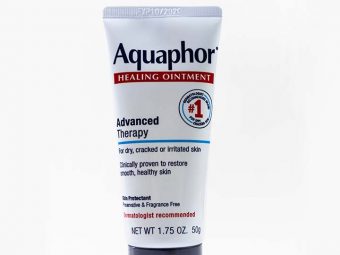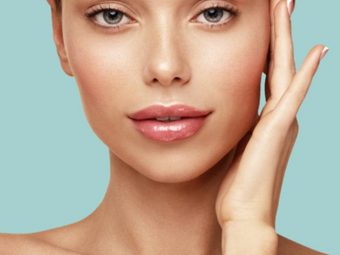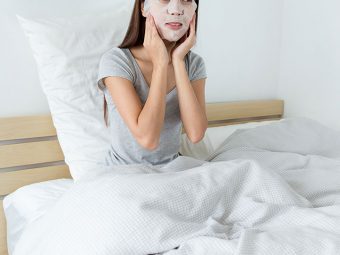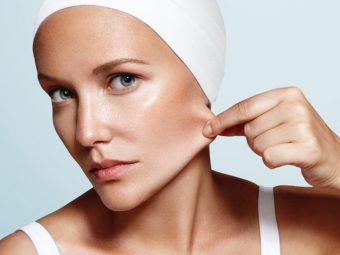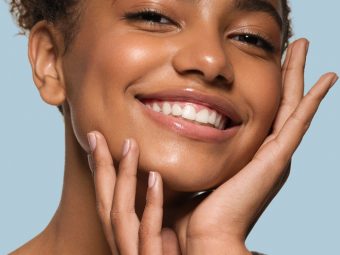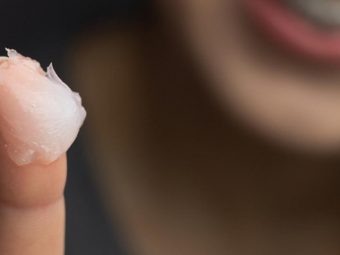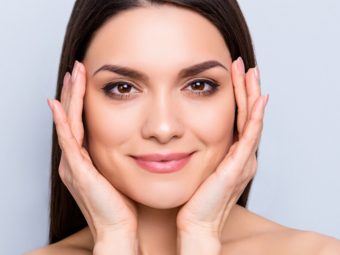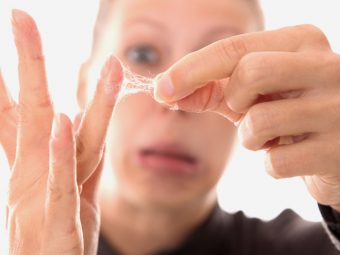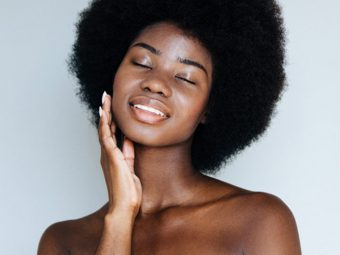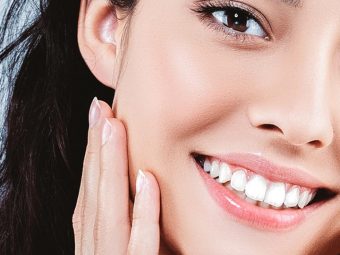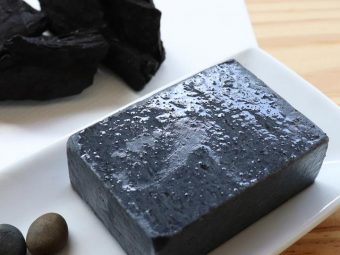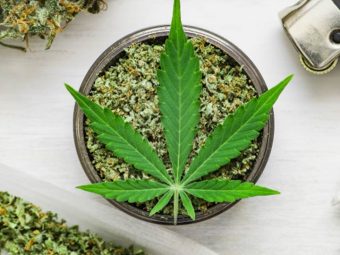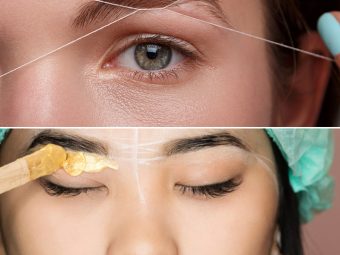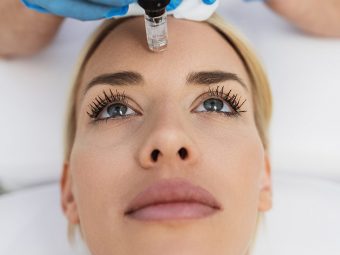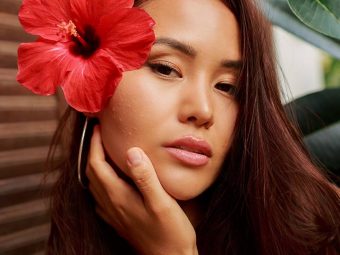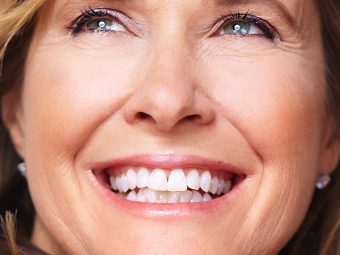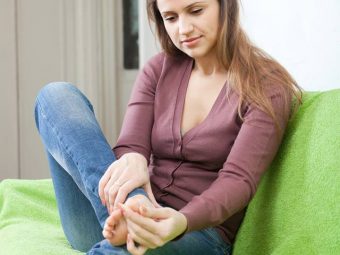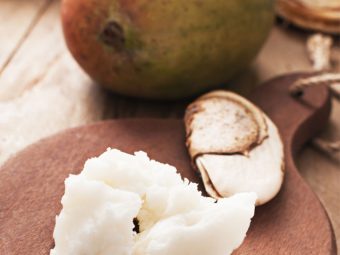Doctors Explain Why Beauty Sleep Is Good For Your Skin
Revealed - the science behind how your sleep cycle is important for optimal skin health.
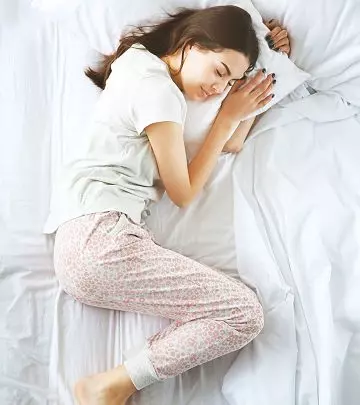
Image: Shutterstock
If you think beauty sleep is a myth, you are wrong. Have you ever wondered why your skin looks fresh, bright, and glowing after you have slept well? It is because when you sleep, your body (including your skin) works hard to repair and heal itself. That is why a good night’s sleep is necessary for you to wake up with refreshed and well-rested skin. In this article, the experts explain the connection between sleep and skin and learn how to get your beauty rest. Read on.
In This Article
What Is Beauty Sleep? What Is The Science Behind It?
“Beauty sleep is when your skin takes the time to heal itself from any damage done during the day,” says Dr. Stacy Chimento, board-certified dermatologist. She adds, “When the body enters deep sleep, our muscles relax, improving blood flow and collagen rebuilding. It further activates the recovery mode and produces human growth hormone (HGH) and melatonin (a hormone released by the pineal gland at night). These hormones create new cells that help heal our skin from inside out, even beyond the epidermis.”
Sleep influences cognitive, behavioral, and physiological functions and has a crucial impact on your long-term health. Studies consider beauty sleep crucial for improved facial and physiological appearance. Sleep-deprived people appear fatigued and unhealthy as they usually have red and swollen eyes, dark circles, paler skin, and prominent wrinkles and fine lines (1).
There are multiple other ways that sleep affects our skin. According to board-certified dermatologist Dr. Erum Ilyas, “Lack of proper sleep impairs skin hydration and leads to reduced elasticity and opportunity for DNA-repair mechanisms.” The next section explores all aspects of how sleep affects the skin.
How Does Sleep Affect Your Skin?
Insufficient sleep can:
- Affect Skin Hydration Levels: According to a study on 22 Korean women, poor sleep quality reduces skin moisture levels and increases sebum production. The researchers observed that sleep deprivation reduced glow, transparency, and elasticity (2).
- Cause Skin Aging: A study revealed that lack of proper sleep increased the signs of aging, such as fine lines, hyperpigmentation, skin sagging, and dryness (3).
- Cause Breakouts: Sleep deprivation causes stress and increases the cortisol levels in your body (4). Stress and excess cortisol levels stimulate the sebaceous glands, increasing excess sebum production, leading to acne and breakouts (5).
Getting proper sleep can prevent all these harmful effects on your skin and keep it healthy. Some of the benefits of beauty sleep include:
1. Fewer Wrinkles
When you sleep, an integral part of your body’s repair process is making new collagen that keeps your skin taut and prevents sagging. Moreover, while you are asleep, the body repairs the skin barrier and all signs of environmental damage. These internal processes keep your skin youthful (1).
2. Glowing Skin
Sleep is the energy boost your body needs every day. Proper sleep helps prevent transepidermal water loss, maintains skin hydration levels, and keeps it plump, healthy, and glowing.
3. Less Puffy Eyes
Not getting enough sleep or chronic sleep deprivation can give you dark circles or puffy bags under your eyes. According to Dr. Stacy Chimento, “By getting a proper sleep, you have better chances of waking up with brighter, de-puffed eyes, and a great skin.”
4. Improved Blood Flow
Board-certified dermatologist Dr. Erum Ilyas elaborates, “The blood flow to the skin increases later in the day and the evening, and the healthy skin cells get an opportunity to repair and proliferate with their maximum activity during the night.”
5. May Reduce The Frequency Of Breakouts
Beauty sleep offers substantial benefits for maintaining clear skin and minimizing facial breakouts. Adequate and quality sleep plays a pivotal role in skin health by allowing the body to repair and regenerate cells, including those in the skin. During sleep, the body’s cortisol levels decrease, reducing inflammation that may contribute to acne (4). Additionally, sufficient sleep enhances the body’s immune function, aiding in the fight against acne-causing bacteria (6). Moreover, the body produces more collagen during sleep, promoting skin elasticity and reducing the appearance of blemishes and scars (7). Ensuring a consistent sleep routine may notably improve skin health, reducing the likelihood of breakouts and fostering a clearer, more radiant complexion.
While beauty sleep has a lot of benefits, you have to ensure that you sleep for at least a few hours to get the maximum benefits and stick to that number.
How Many Hours Of Sleep Do You Need?
Dr. Chimento recommends “7-9 hours of sleep as this gives enough to your skin and your body to rest and feel rejuvenated.”
At nighttime, you must prepare your body for rest. This helps you get a complete 7-9 hours of uninterrupted sleep. Here are a few tips you should follow.
How To Get Your Beauty Rest: Tips To Follow Before Bedtime
1. Create A Relaxing Environment
Before you unwind and settle into bed each night, it is vital to create a bedtime routine that helps you relax and eventually fall asleep. Keep all your gadgets away and make your bedroom a gadget-free zone. You may use darkening blinds or soothing lights and aromatherapy candles – whatever helps you feel relaxed. You may also indulge in relaxing activities like reading a book or journaling.
 Quick Tip
Quick Tip2. Avoid Stimulants Before Bed
To ensure you get good sleep every night, stay away from coffee, nicotine, and alcohol at least three to four hours before bedtime. They have a stimulating effect, which may take hours to wear off.
3. Check What You Eat
Never go to bed hungry or with a stuffed stomach. Not eating at all or eating a large meal before you go to bed can cause discomfort and hamper your sleep. Also, avoid spicy and acidic foods as they may cause stomach issues and heartburn.
4. Reduce Your Light Exposure
When it is dark, your brain secretes melatonin, a hormone that helps you sleep. Exposing yourself to light before bedtime can affect melatonin production. Avoid bright screens (like mobile, laptop, and television) at least 1-2 hours before sleeping. Avoid reading on backlit devices like tablets and ensure the room is dark.
 Quick Tip
Quick Tip5. Clean Your Sheets And Pillowcases Regularly
Your pillowcase is the closest anything can get to your facial skin while you sleep. It is, therefore, essential to wash your pillowcases regularly to remove any oil, dirt, and bacteria that may be accumulating on them and can cause skin infections like acne.
Since your skin heals at night, a proper nighttime skin care routine is crucial to fortify the skin’s healing process. Dr. Chimento says, “During the night, your skin is also more permeable and receptive to any products you apply before bed.” Here are a few tips to prepare your skin for beauty sleep.
How To Prepare Your Skin For Beauty Sleep
Wash your face properly to remove all dirt and grime. According to Dr. Chimento, “You should focus on detoxifying and cleansing your skin to clear all traces of dirt and grime from the day. Use exfoliating products that cleanse your skin without irritating it.”
Once your face is clean, you can apply protective and repairing ingredients to help your skin repair itself. Katie Noffsinger, a Michigan-based licensed esthetician and herbalist, says, “Skin care should align with the circadian rhythm (sleep/wake cycle), and there are two rules to do that – apply protecting ingredients in the morning and repairing ingredients at night.”
For repairing your skin at night, she suggests using the following ingredients:
- Retinol: It enhances collagen and elastin formation, stimulates the blood vessels, and helps shed dead skin cells (8).
- Amino Acids and Peptides: These ingredients help the body in repairing and rebuilding the skin (9),(10).
- Tyrosinase Inhibitors: These ingredients (like arbutin and kojic acid) will target the overactive melanocytes (cells that produce melanin) and brighten your skin (11).
- Alpha Hydroxy Acids: They exfoliate the skin and create pathways so that the skin can absorb products better (12).
- Salicylic Acid: This beta-hydroxy acid promotes the skin’s natural exfoliation process and clears the pores to prevent breakouts(13).
- Benzoyl Peroxide: It kills acne-causing bacteria and may help heal blemishes(13).
For your PM skin care routine, follow these steps:
- Wash your face thoroughly with a gentle cleanser. If you have acne-prone or oily skin, use a cleanser with salicylic acid or benzoyl peroxide.
- Use chemical exfoliators containing AHAs to exfoliate dead skin cells. However, exfoliate only once a week and avoid combining AHAs with BHA and retinol.
- Apply a toner containing ceramides, peptides, amino acids, and other hydrating and soothing ingredients.
- Use treatments or serums containing retinol or tyrosinase inhibitors.
- Finish off with a nourishing moisturizer to lock all the goodness of the ingredients.
Beauty sleep is about bringing the “care” back into your skin care routine. When you sleep, your skin gets the chance to heal itself and repair the damage caused throughout the day. And when you do not get enough sleep, your body perceives it as a sign of stress, which may affect your overall skin quality. This stress often manifests as signs like breakouts, dark circles, dull skin, and premature aging. Therefore, no matter how busy you are, get at least seven hours of sleep and wake up looking refreshed the next morning. Consult a doctor immediately if you have sleep issues (like insomnia), as chronic sleep deprivation may cause other health issues.
Frequently Asked Questions
What is the best time to sleep for healthy skin?
Sleeping between 9 PM and 11 PM is considered best for healthy skin.
What is the healthiest sleep position?
Sleeping on your back is considered the safest and healthiest sleep position.
Does sleeping late make your face fat?
Yes, sleeping late may make your face fat. If a person gets too little sleep, there may be fluid retention that triggers facial swelling and may make your face look fat.
Does side sleeping change your face?
Yes. Side sleeping positions may make your face asymmetrical or cause wrinkles over time.
Does lack of sleep darken skin?
Yes. Lack of sleep may decrease blood circulation, which results in lower oxygen levels in the blood. This, in turn, results in pigmented or dark skin.
Can sleep reduce pimples?
Sleeping early may help improve your blood circulation, reduce stress levels, and help your skin to repair fast. This helps reduce pimples and factors causing acne.
Key Takeaways
- Sleep allows your body to produce human growth hormone (HGH) and melatonin, which play a role in the formation of new and healthy skin cells. Inadequate sleep can result in fine lines, acne, and dull skin.
- Getting 7 to 9 hours of sufficient sleep gives you glowing, youthful, and healthy skin.
- Creating a cool and dark environment and eating a light dinner ensures your body has sufficient and restful sleep.
- Cleansing your skin and applying products with retinol, salicylic acid, and amino acids help in boosting collagen production, rebuilding the skin, and moisturizing your skin.
Explore the importance of sleeping for the beauty of your skin in this video. Learn how quality sleep contributes to skin health and discover practical tips for resting well to achieve a radiant complexion. Click play to know more!
References
Articles on StyleCraze are backed by verified information from peer-reviewed and academic research papers, reputed organizations, research institutions, and medical associations to ensure accuracy and relevance. Read our editorial policy to learn more.
- Perceived Age and Life Style. The Specific Contributions of Seven Factors Involved in Health and Beauty
https://www.ncbi.nlm.nih.gov/labs/pmc/articles/PMC5706759/ - Evaluation of changes in skin characteristics due to the poor quality of sleep caused by smartphone usage
https://pubmed.ncbi.nlm.nih.gov/34062052/ - Sleep deprivation linked to aging skin, study suggests
https://www.sciencedaily.com/releases/2013/07/130723155002.htm - Sleep loss results in an elevation of cortisol levels the next evening,
https://pubmed.ncbi.nlm.nih.gov/9415946/ - The association between stress and acne among female medical students in Jeddah, Saudi Arabia
https://www.ncbi.nlm.nih.gov/labs/pmc/articles/PMC5722010/ - Sleep and immune function
https://www.ncbi.nlm.nih.gov/pmc/articles/PMC3256323/ - A study of skin characteristics with long-term sleep restriction in Korean women in their 40s
https://pubmed.ncbi.nlm.nih.gov/31692145/ - Retinoids in the treatment of skin aging: an overview of clinical efficacy and safety
https://www.ncbi.nlm.nih.gov/labs/pmc/articles/PMC2699641/ - Role of topical peptides in preventing or treating aged skin
https://pubmed.ncbi.nlm.nih.gov/19570099/ - Amino acids in the regulation of aging and aging-related diseases
https://www.sciencedirect.com/science/article/pii/S2468501119300082 - Skin whitening agents: medicinal chemistry perspective of tyrosinase inhibitors
https://www.ncbi.nlm.nih.gov/labs/pmc/articles/PMC6010116/ - Alpha Hydroxy Acids
https://www.fda.gov/cosmetics/cosmetic-ingredients/alpha-hydroxy-acids - Over-the-counter Acne Treatments
https://www.ncbi.nlm.nih.gov/labs/pmc/articles/PMC3366450/





